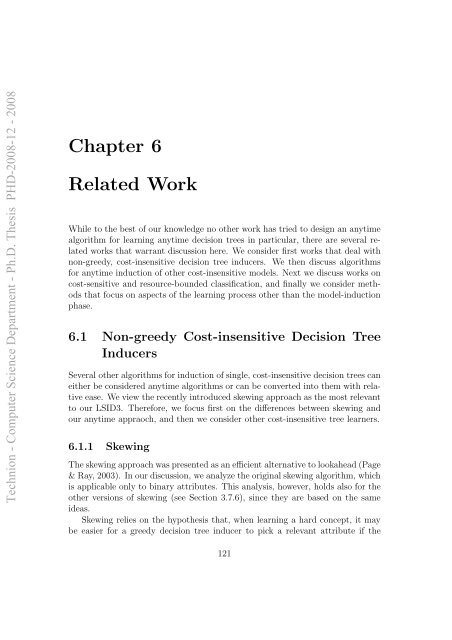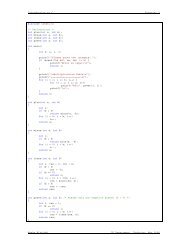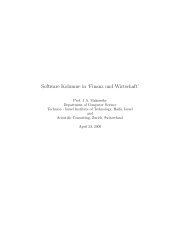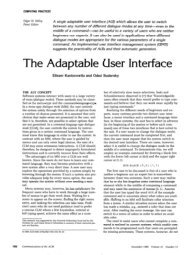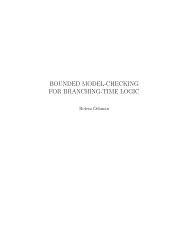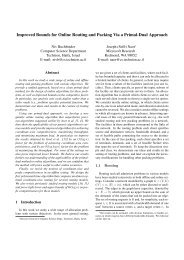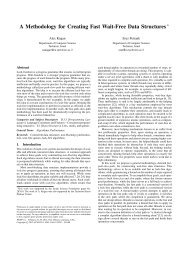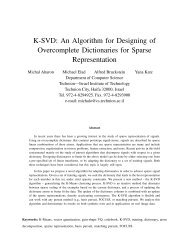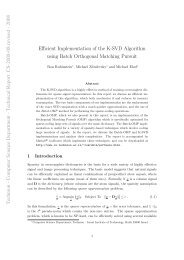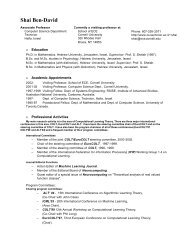anytime algorithms for learning anytime classifiers saher ... - Technion
anytime algorithms for learning anytime classifiers saher ... - Technion
anytime algorithms for learning anytime classifiers saher ... - Technion
Create successful ePaper yourself
Turn your PDF publications into a flip-book with our unique Google optimized e-Paper software.
<strong>Technion</strong> - Computer Science Department - Ph.D. Thesis PHD-2008-12 - 2008<br />
Chapter 6<br />
Related Work<br />
While to the best of our knowledge no other work has tried to design an <strong>anytime</strong><br />
algorithm <strong>for</strong> <strong>learning</strong> <strong>anytime</strong> decision trees in particular, there are several related<br />
works that warrant discussion here. We consider first works that deal with<br />
non-greedy, cost-insensitive decision tree inducers. We then discuss <strong>algorithms</strong><br />
<strong>for</strong> <strong>anytime</strong> induction of other cost-insensitive models. Next we discuss works on<br />
cost-sensitive and resource-bounded classification, and finally we consider methods<br />
that focus on aspects of the <strong>learning</strong> process other than the model-induction<br />
phase.<br />
6.1 Non-greedy Cost-insensitive Decision Tree<br />
Inducers<br />
Several other <strong>algorithms</strong> <strong>for</strong> induction of single, cost-insensitive decision trees can<br />
either be considered <strong>anytime</strong> <strong>algorithms</strong> or can be converted into them with relative<br />
ease. We view the recently introduced skewing approach as the most relevant<br />
to our LSID3. There<strong>for</strong>e, we focus first on the differences between skewing and<br />
our <strong>anytime</strong> appraoch, and then we consider other cost-insensitive tree learners.<br />
6.1.1 Skewing<br />
The skewing approach was presented as an efficient alternative to lookahead (Page<br />
& Ray, 2003). In our discussion, we analyze the original skewing algorithm, which<br />
is applicable only to binary attributes. This analysis, however, holds also <strong>for</strong> the<br />
other versions of skewing (see Section 3.7.6), since they are based on the same<br />
ideas.<br />
Skewing relies on the hypothesis that, when <strong>learning</strong> a hard concept, it may<br />
be easier <strong>for</strong> a greedy decision tree inducer to pick a relevant attribute if the<br />
121


